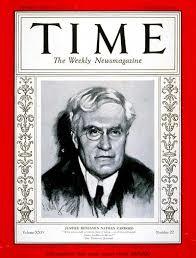During the dinner, the question predictably arose: What would it take for you to fire a law firm?
And the answer the Fortune 10 GC gave went like this: “We’re in a major piece of litigation; our outside firms tells us, ‘happy face,’ ‘happy face,’ ‘happy face,’ ‘happy face,’ ‘happy face,’ and then a year or so in it gets to be the eve of trial and they tell us, ‘We can’t possibly try this case; it would be a full-blown calamity, meltdown, and disaster. You need to settle this ASAP.'”
That, our GC reported, got the outside firm on his company’s permanent blacklist. (I don’t know if he told the firm this or not, but if he’s a typical GC, the firm never actually informed–the phone just never rang again.)
Closely related, and also a true story:
Imagine a bakeoff or RFP among a few firms for another heavy-duty piece of litigation. One firm presents a dark vision of what the client is facing: This is going to be painful, protracted, immensely costly, and damaging; ultimately you’ll almost certainly lose. That’s just the way it is. Two other firms present rosy scenarios: We can handle this at minimal expense, easily, and make it all go away, don’t worry; we can clean it up in no time.
Client hires one of “rosy scenario” firms, but a year later comes back to Firm #1 saying they made a ghastly mistake, that everything Firm #1 predicted had come true. They should have hired Firm #1 to begin with, and next time they would. They might not have wanted to hear what Firm #1 said at the time, but they had gained the client’s respect while they had lost all respect for Firms ##2 & 3.
Before I heard these stories, I didn’t think there would be a need for, or any utility in, my writing a piece like this.
This really is the bedrock of our profession, and you can’t dig underneath and find anything more foundational; this is it.
And we do, or should, know this in our hearts. Does this sound familiar?:
It shall be unlawful for any person, directly or indirectly …
(a) To employ any device, scheme, or artifice to defraud,
(b) To make any untrue statement of a material fact or to omit to state a material fact necessary in order to make the statements made, in the light of the circumstances under which they were made, not misleading, or
(c) To engage in any act, practice, or course of business which operates or would operate as a fraud or deceit upon any person.
Or if that comes across as too legalistic, try this condensed version:
Thou shalt not bear false witness.
—Exodus 20:16




Bruce,
As always, thanks for sharing. Too bad in the examples above there was significant costs that made this a pricey lesson for the client.
One way to avoid this is to get the gulliable and guitly to revealing themselves early on in the process when the stakes a lower in order to avoid “finding out” when the stakes are greater.
Freakonomics dealt with it in the Van Halen rock band rider example. By finding out if there was No Brown M&M’s (contract rider – low cost stakes), it signalled to the band if the promoter even read the contract that involved technical requirements for pyrotechnics (high cost stakes).
http://www.wsj.com/articles/how-to-trick-the-guilty-and-gullible-into-revealing-themselves-1399680248
Another example is one where a bank CEO takes the hiring prospect for a high level position to an interview over a restaurant meal. The CEO calls the day prior to the interview and says to the wait staff, “I want you to mess up the interviewee’s order. I’ll tip you well, no matter what.” Here the bank CEO sees how the interviewee handles others when mistakes are made, or even if acknowledged. (I can’t find the link to this.)
Short answer – creating low cost stakes events singals how high cost stake situations pan out.
JC,
What happens if one turns the lens around and asks what could be done to limit the risk of this sort of behavior within the law firm? How does one establish and maintain the “punctilio of an honor the most sensitive?” Is it entirely an issue of individual initiative, or is it a learned behavior? What are our associates learning were we to be behave in such ways, and what might they learn if we were to behave differently?
Mark –
Thanks for the feedback.
I’ll say that the issues will not be addressed by the firms themselves unless they first acknowledge there is a problem/situation. Many firms don’t even think this is an issue. This is a major theme in many throughout the Adam Smith Esq blog posts, including this one.
Bruce does offer one way to make sure the firm knows it is a problem. At the end of the matter/working relationship – call the firm and make it clear why the client is ending the relationship.
“(I don’t know if he told the firm this or not, but if he’s a typical GC, the firm never actually informed–the phone just never rang again.)”
The hardest thing to hear is the silence of those who matter.